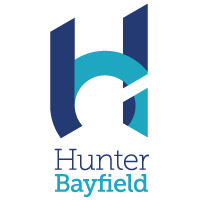These are important questions for any organisation and if the project is not going to plan it is better to know this earlier rather than later. Without this early warning mitigation plans are either too late or less effective.
The programme or schedule is a live document used as a project management tool to deliver the project. It should be regularly updated to reflect progress as the project proceeds. With each update key criteria may change. The critical path may alter together with the amount of float and the dates for key milestones may be different. But there can be other, more subtle changes that involve the logic which underpins the programme and the duration of activities.
These changes can indicate how the project is performing. Consistent slippage to the forecast dates for key milestones will be a warning sign. The erosion of float and occurrence of several critical or near critical paths means that the programme is much more sensitive change with little float to absorb that change.
It is useful to monitor these changes to the programme and quantify them on a regular basis. It also has the advantage of building up a database of programme revisions that can be used in any subsequent programme analysis exercises. It is much more time consuming to request programme information after any incident and sometimes that programme information no longer exists.
• We carry out reviews of the robustness of programmes of work and determine if the programme is fully logic linked and analyse the level of float that exists.
• We analyse the proposed programme, focusing on the contractual requirements in order to determine if the programme will realistically meet these conditions and identify the possible delays or accelerations in the programme and assist in allocating delay or gain.
• We provide an independent programme review of the key project milestones and progress against agreed baselines, identifying possible variances and analysing the potential consequences with advice and analysis of any programming issues.
King's College, London - Student Accommodation
A £34m project which was part refurbishment and part new build under a JCT form of contract. The project commenced in 2013 and completed in 2014 on a site in Denmark Hill. Hunter Bayfield's role was to monitor the progress on site and compare this to the published programme of works. We participated in programme workshops to address issues that could impact programme and the critical date for completion for the new student intake.
Quadram Institute, Norwich, Norfolk
The Quadram Institute is a state of the art centre for food and health research integrating teams from the University of East Anglia's Faculty of Science and Norwich Medical School, the Institute for Food Research and the Norfolk and Norwich University Hospital's gastrointestinal endoscopy department. Opening in 2018, with the first patients being treated in the endoscopy unit on the 10th December, it houses 300 scientists and 100 clinicians. Hunter Bayfield was appointed to monitor the progress of the work-streams programmes and report on performance through a number of key deliverables for each work- stream.
Alto Maipo Hydroelectric Project, Santiago, Chile
Appointed by insurers to monitor the rate of progress and the performance of key delivery milestones on this hydroelectric project with extensive tunnelling. The commission includes the collection and analysis of programmes produced by the contracting organisations responsible for the packages of work. Reports are produced looking at the performance trend and the potential impact to key dates. The project commenced in 2013 and is due for completion in 2019. The form of contract is FIDIC and the project value is in excess of US $700m.








